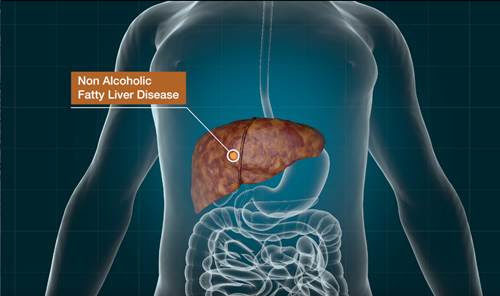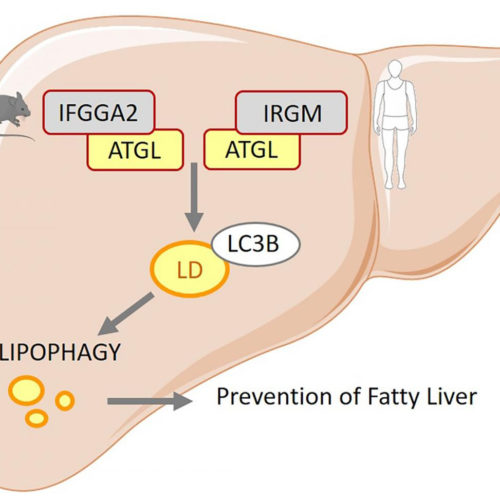Scientists spur advances in fatty liver disease therapy by modifying an existing neurological drug. Nonalcoholic fatty liver disease (NAFLD) severely impairs the quality of life in patients and often leads to various liver complications. Recently, scientists at Gwangju Institute of Science and Technology designed a novel compound that can potentially treat NAFLD by targeting peripheral...
Tag: <span>fatty liver disease</span>
Chemicals often found in consumer products could lead to obesity and fatty liver diseases
While poor nutrition and lack of exercise contribute to obesity, exposure to these compounds could trigger lifelong susceptibility to weight gain, Baylor University researcher says Chemical compounds found in many consumer products could be major contributors to the onset of lipid-related diseases, such as obesity, in humans, according to a Baylor University study. Until recently,...
Additional genetic cause for non-alcoholic fatty liver disease discovered
In Germany about 18 million people suffer from non-alcoholic fatty liver. The causes of this disease are manifold and include environmental as well as genetic factors. DZD researchers have now discovered new genes that play a role in the development of fatty liver. In humans and mice, respectively, the genes IRGM, Ifgga2 and Ifgga4 are...
Stevia extract reduces signs of fatty liver disease
In the near future, fatty liver disease is projected to become the major reason for liver transplants. A new study in mice has found that stevia extract can improve signs of the condition. Stevia extract may help combat nonalcoholic, or fatty, liver disease. Fatty liver disease, or nonalcoholic steatohepatitis, involves the liver being made up...
Non-caloric sweetener reduces signs of fatty liver disease in preclinical research study
There is clear evidence that high sugar consumption leads to obesity and fatty liver disease. Synthetic and natural alternatives to sugar are available, but little is known about the effects of these non-caloric sweeteners on the liver. A new study led by Rohit Kohli, MBBS, MS, shows that stevia extract can reduce markers of fatty...
Bariatric surgery may be effective treatment for non-alcoholic fatty liver disease
THE ENDOCRINE SOCIETY WASHINGTON–Bariatric surgery may be an effective treatment for non-alcoholic fatty liver disease (NAFLD), suggests a new study accepted for presentation at ENDO 2020, the Endocrine Society’s annual meeting, and publication in the Journal of the Endocrine Society. The study compared three types of bariatric, or weight loss, surgery: gastric sleeve, gastric band...
Natural compound in vegetables helps fight fatty liver disease
by Paul Schattenberg, Texas A&M University A new study led by Texas A&M AgriLife Research scientists shows how a natural compound found in many well-known and widely consumed vegetables can also be used to fight fatty liver disease. The study demonstrates how non-alcoholic fatty liver disease, or NAFLD, can be controlled by indole, a natural...
What to know about fatty liver disease
The liver typically contains some fat. However, if it builds up, it can cause fatty liver disease. This means that the liver is not able to function normall1y. Fatty liver disease can occur when there is more than 5% fat in the liver. This article will cover the symptoms, causes, treatment, prevention, and more for...
Study finds that in mice, lycopene in tomatoes reduced fatty liver disease, inflammation and liver cancer
In the fight against cancer, there is a surprising tool in the arsenal: the food we eat. That’s because some nutrients in food have been found to play a role in preventing cancer, and it’s relevant because the World Cancer Research Fund reports that 30 to 50 percent of cancer cases are preventable, putting a...
Treatment for obesity and fatty liver disease may be in reach
Professor Amiram Goldblum and his team at the Hebrew University of Jerusalem’s Institute for Drug Research have discovered 27 new molecules. These molecules all activate a special protein called PPAR-delta and have the potential to treat fatty liver disease, obesity, diabetic nephrotoxicity, and to heal wounds. MAGE: THIS IS PROFESSOR AMIRAM GOLDBLUM.view more CREDIT: HEBREW...






